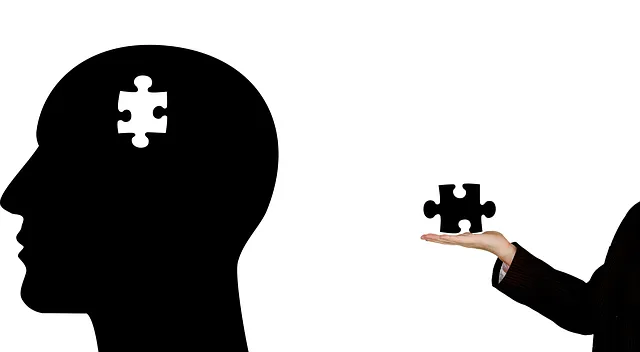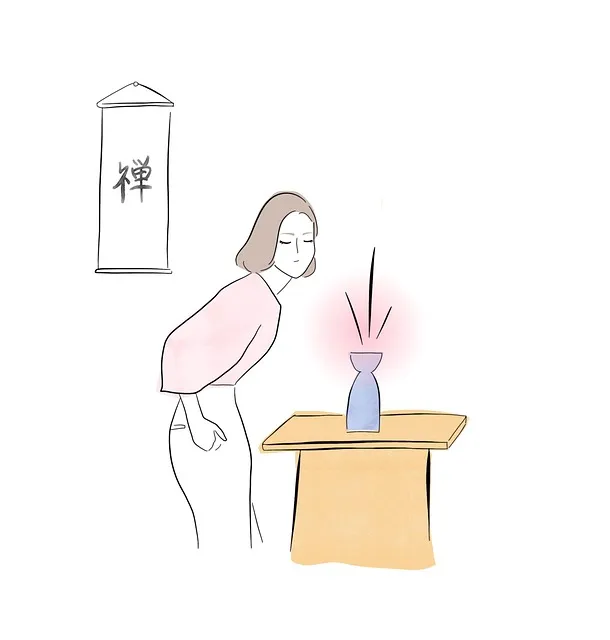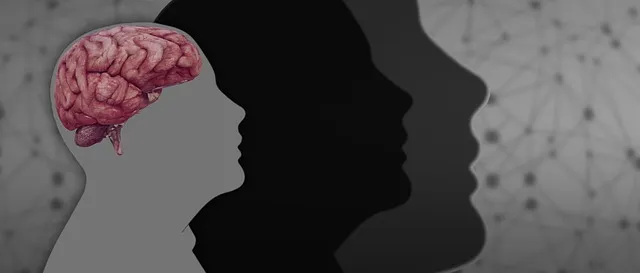Mood regulation, akin to balancing a structure, requires managing emotional states despite external factors. Golden Kaiser Permanente Mental Health employs holistic methods like mindfulness, meditation, and Compassion Cultivation Practices for emotional well-being. Cognitive Behavioral Techniques target negative thought patterns, improving well-being and stress reduction. Lifestyle adjustments such as diet, exercise, and sleep also play crucial roles in mood regulation. Professional support through therapy and counseling empowers individuals to address root causes of distress and cultivate inner resilience.
Mood regulation strategies are essential tools for maintaining emotional well-being. In today’s fast-paced world, understanding how to balance one’s mood is crucial for overall health. This article explores various techniques to help you navigate life’s challenges. From mindfulness and meditation practices backed by Golden Kaiser Permanente mental health experts, to cognitive behavioral techniques, lifestyle adjustments, and the importance of professional support, discover a holistic approach to mastering your emotions.
- Understanding Mood Regulation: Unraveling Emotional Balance
- The Role of Mindfulness and Meditation in Golden Kaiser Permanente Mental Health
- Cognitive Behavioral Techniques for Effective Mood Management
- Lifestyle Adjustments: Diet, Exercise, and Sleep for Emotional Well-being
- Professional Support: Therapy and Counseling as Mood Regulation Tools
Understanding Mood Regulation: Unraveling Emotional Balance

Understanding Mood Regulation is a pivotal aspect of mental health, akin to the intricate balance of a Golden Kaiser Permanente structure, where each element must be meticulously aligned for stability and harmony. This process involves recognizing and managing our emotional states, ensuring they remain in check despite external circumstances. Mental Wellness hinges on the ability to navigate through fluctuations, from periods of elation to moments of melancholy.
Self-Awareness Exercises play a pivotal role in this journey, acting as tools to decipher the nuances of our emotions. By paying close attention to our thoughts and feelings, we can identify triggers, develop coping mechanisms, and foster effective Mood Management strategies tailored to our unique needs. This proactive approach empowers individuals to navigate life’s challenges with resilience, ultimately enhancing their overall Mental Wellness.
The Role of Mindfulness and Meditation in Golden Kaiser Permanente Mental Health

At Golden Kaiser Permanente Mental Health, we recognize that mindfulness and meditation are powerful tools in navigating and regulating one’s mood. These practices, deeply rooted in ancient wisdom, have gained scientific validation as effective strategies for enhancing emotional well-being. Mindfulness encourages individuals to cultivate present-moment awareness, enabling them to observe their thoughts and feelings without judgment. This approach is particularly beneficial in managing stress, anxiety, and depression by fostering a sense of calm and clarity.
Through various Compassion Cultivation Practices (CCP), our community outreach program implementation focuses on teaching individuals how to respond to distressing emotions with kindness and understanding, both towards themselves and others. This holistic approach, combined with meditation techniques, has been shown to promote emotional resilience and overall mental health. By integrating mindfulness into daily routines, Golden Kaiser Permanente Mental Health aims to empower individuals to take control of their psychological well-being, fostering a sense of balance and peace amidst life’s challenges.
Cognitive Behavioral Techniques for Effective Mood Management

Cognitive Behavioral Techniques (CBT) are highly effective strategies for managing and regulating mood, as recommended by Golden Kaiser Permanente mental health experts. CBT focuses on identifying and challenging negative thought patterns and beliefs that contribute to adverse emotional states. By modifying these cognitive processes, individuals can significantly improve their overall well-being and mood stability. This approach empowers people to take control of their thoughts and emotions, leading to better stress reduction methods and burnout prevention.
In the realm of stress management, CBT encourages individuals to recognize triggers and develop healthier coping mechanisms. It teaches practical skills to navigate challenging situations, fostering resilience and emotional agility. Through this process, folks can transform their relationship with stress, transforming it from a overwhelming force into a manageable aspect of life.
Lifestyle Adjustments: Diet, Exercise, and Sleep for Emotional Well-being

Lifestyle adjustments play a pivotal role in mood regulation and emotional well-being, as highlighted by Golden Kaiser Permanente mental health experts. Diet, exercise, and sleep are fundamental pillars that significantly influence our mental state. A balanced diet rich in essential nutrients provides the brain with the fuel it needs to function optimally, contributing to improved mood and reduced symptoms of mental illness. Regular physical activity not only boosts energy levels but also releases endorphins, known as “feel-good” hormones, which can help alleviate stress, anxiety, and depression.
Adequate sleep is equally crucial. The brain processes and consolidates memories during sleep, and insufficient rest can lead to cognitive impairment and emotional dysregulation. Incorporating these lifestyle changes into your routine can be a powerful tool in managing mental health, especially for healthcare providers who often face the challenge of burnout prevention. By addressing dietary, exercise, and sleep habits, individuals not only support their overall well-being but also engage in meaningful mental illness stigma reduction efforts and build confidence to navigate life’s challenges more effectively.
Professional Support: Therapy and Counseling as Mood Regulation Tools

Professional support plays a pivotal role in mood regulation, offering individuals valuable tools to manage and improve their emotional well-being. Therapy and counseling are proven methods that can significantly enhance mental health practices, as highlighted by Golden Kaiser Permanente’s commitment to comprehensive mental health care. These therapeutic approaches provide a safe space for exploration and understanding of underlying issues affecting one’s mood.
Through therapy, individuals can develop coping mechanisms tailored to their unique needs. Compassion cultivation practices, a key component often integrated into therapeutic models, teach empathy and kindness towards oneself, fostering a supportive inner environment. By addressing root causes of emotional distress, these sessions empower clients with skills for effective stress management, a crucial aspect of maintaining balanced moods over time.
Mood regulation is a multifaceted process that involves understanding and addressing various aspects of emotional well-being. From mindfulness practices and cognitive behavioral techniques to lifestyle adjustments, individuals can gain significant control over their moods. Golden Kaiser Permanente mental health services play a crucial role in providing professional support, offering therapy and counseling to help patients navigate and manage their emotional journeys effectively. By combining these strategies, folks can foster resilience and achieve a more balanced state of mind.






